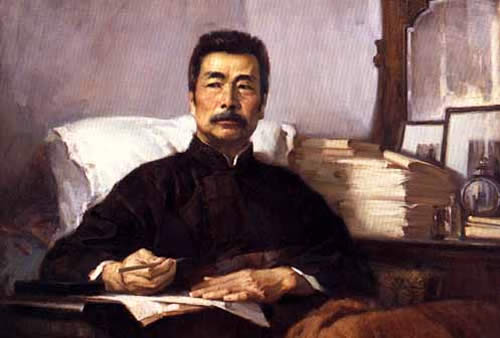As Shanghai flourished as a multinational hub for finance and business in the 1930s, it also became home to many prominent Chinese writers and translators, who lived and worked in Shanghai during that period.
Lu Xun (1881-1936), often called the founder of modern Chinese literature, wrote most of his well-known satirical essays after 1927, when he moved to Shanghai. He lived in a three-story house in the Hongkou area, then the Japanese concession.

In Shanghai Lu Xun co-founded the Chinese League of Left-Wing Writers and called on the public to rebel against the corrupt government. Lu Xun died of tuberculosis in his Shanghai home in 1936. A flag bearing the words "soul of the nation" was laid on top of his coffin before he was buried in the international cemetery in Hongqiao. Two decades later his grave was moved to Hongkou Park.
Today people can visit his former residence at No 200, Tian'ai Road.
Another representative writer of Shanghai, Eileen Chang (1920-1995), took almost the opposite stance to Lu Xun. Without paying attention to politics or public welfare, Chang's novels focused on the tragic nature of human life.
Chang returned to Shanghai in 1942 without finishing her studies in Hong Kong because of the Pacific War. In Shanghai she lived in an apartment at No 195, Changde Road with her aunt. She published many novellas and short stories in magazines and became very popular among readers in Shanghai.
Shanghai was most important to her writing, though she moved to the United States in the 1950s and later died there.
As an important hub of international trade, Shanghai not only imported Western goods, but also Western art and literature. The early 20th century witnessed the first large-scale introduction of Western books to China and Shanghai became the base for some of China's greatest literary translators.
Zhu Shenghao (1912-1944) was the first Chinese to systematically translate William Shakespeare. He worked in Shanghai 1933-1942, but died of poverty in his hometown of Jiaxing, Zhejiang province. He is remembered as one of the best Chinese translators of Shakespeare.
By Zhang Kun
Editor: Feng Hui

